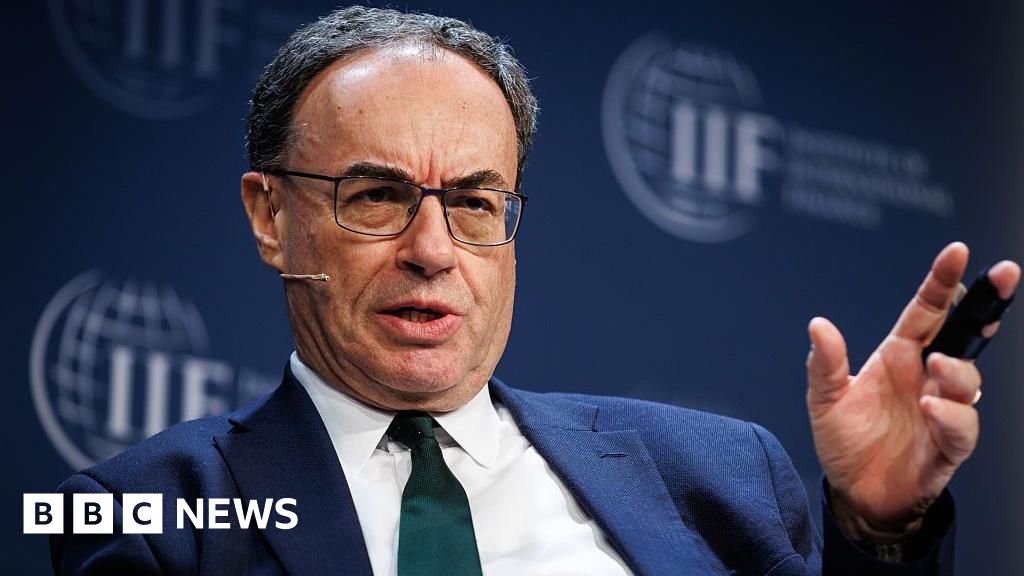Many eye banks won’t accept corneas from donors with diabetes, concerned they might be harder to prepare for transplant surgery or are more likely to fail.
But a new study led by researchers at Case Western Reserve University and…

Many eye banks won’t accept corneas from donors with diabetes, concerned they might be harder to prepare for transplant surgery or are more likely to fail.
But a new study led by researchers at Case Western Reserve University and…

Liam Lawson was left frustrated after narrowly missing out on points to Fernando Alonso at the United States Grand Prix – and reckons one particular moment may have cost him his chance of scoring.
Lawson has scored points on just one occasion…

Unlock the Editor’s Digest for free
Roula Khalaf, Editor of the FT, selects her favourite stories in this weekly newsletter.
Television adaptations of popcorn thriller writer Harlan Coben’s extravagantly plotted novels, from Fool Me Once to The…


The Catan franchise may have taken the longest road to a Hollywood adaptation, but the hit board game has finally struck a deal to bring the iconic resource-management strategy game to the screen.
Netflix has won the rights to the…

When arranged in just the right ways, two-dimensional materials can display unusual and valuable quantum effects such as superconductivity and exotic types of magnetism. Understanding why these effects arise, and how to control them, remains one…

A newly developed method that improves the accuracy of ankle blood pressure measurements could transform care for people who are unable to have their blood pressure taken from the arm.
Researchers from the University of Exeter Medical School, in…

You can buy a smart ring to track your sleep activity or a smartwatch to monitor your heartbeat, so perhaps it makes sense that health tech’s next frontier has come for your toilet. Behold: Dekoda, Kohler’s new toilet cam. No, not that type…

photo: © Paul Bereswill / Hockey Hall Of Fame
…

The collapse of two US companies could be a sign of wider problems in the financial system and “alarm bells” were ringing, the governor of the Bank of England has said.
Andrew Bailey told a House of Lords committee that it was important to take the failure of car parts supplier First Brands and subprime car lender Tricolor “very seriously” – and drew parallels with the 2008 financial crisis.
He said it was unclear whether these were one-off issues, or a case of “the canary in the coal mine”.
Mr Bailey also said the Bank of England was planning to run a “stress test” of private equity and credit firms.
The bankruptcies of First Brands and Tricolor have raised questions about the quality of deals in what is known as the private credit market – where companies arrange loans from non-bank lenders.
Mr Bailey said he did not want “to sound too foreboding at this point”, but that “there is a lot we don’t know about First Brands and Tricolour”.
“I think the big question… is: are these cases idiosyncratic, or are they what I call the canary in the coalmine?
“Are they telling us something more fundamental about the private finance and private assets sector?
“I think that’s still a very open question in the US. I think it’s a question we have to take very seriously.”
On the way loans were being made by private credit, Mr Bailey said there was starting to be “what used to be called sort of slicing and dicing and tranching of loan structures”.
“And, you know, if you’re involved before the financial crisis, the alarm bells start going off at that point.”
Reflecting on the tone of the conversation prior to the 2008 financial crisis, he said that back then there had been a belief that sub-prime mortgages were “too small to be systematic” but that this had been “the wrong call”.
Last week, Jamie Dimon, the boss of US banking giant JPMorgan Chase, warned the failure of the two US firms could be a sign of more to come.
“My antenna goes up when things like that happen,” he told analysts. “I probably shouldn’t say this, but when you see one cockroach, there are probably more.”
Also appearing before the House of Lords’ financial services regulation committee, Sarah Breeden, the Bank’s deputy governor for financial stability, said the Bank would be examining the private finance sector.
“We can see the vulnerabilities here,” she said. “We can see parallels with the global financial crisis.”